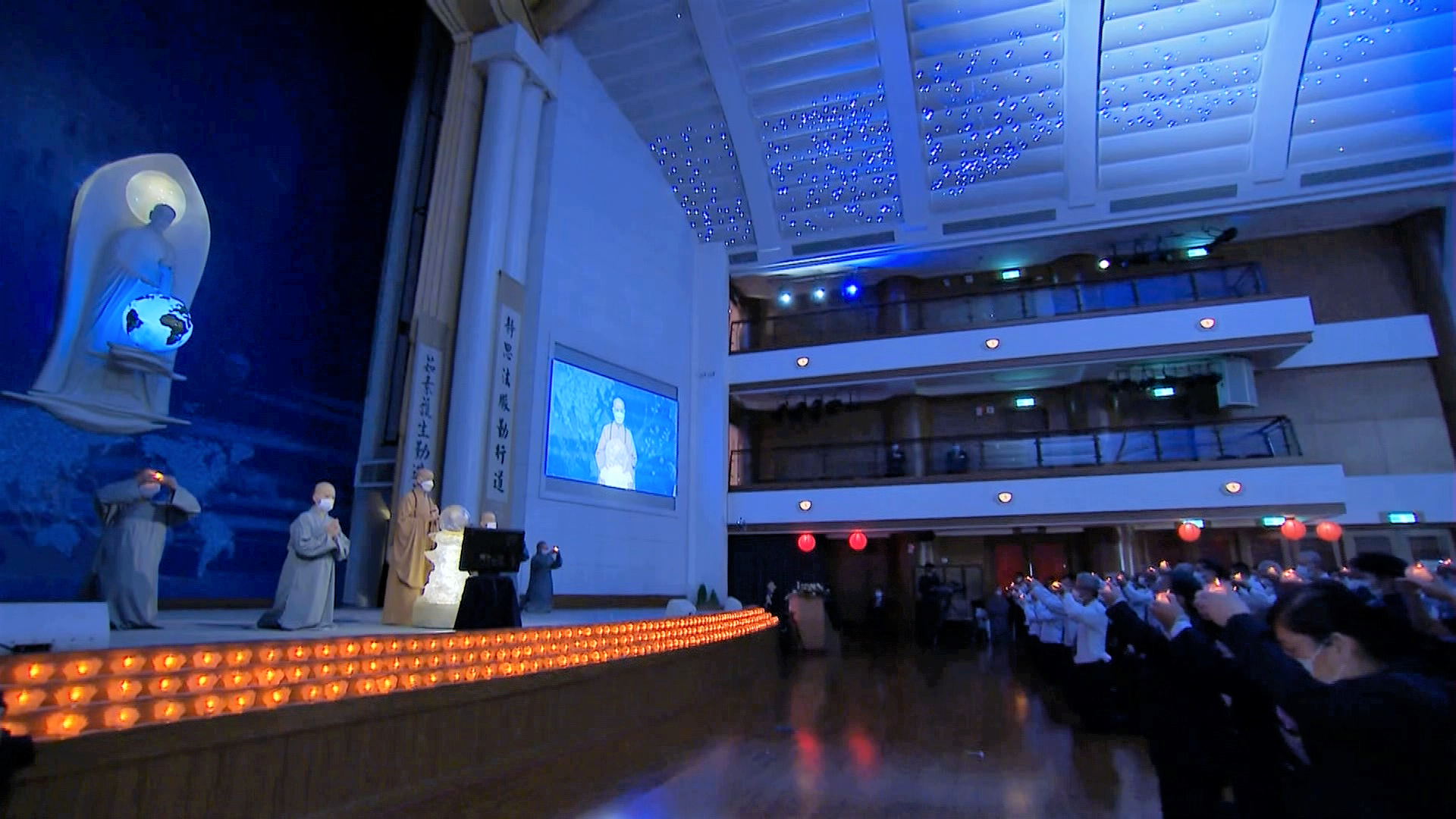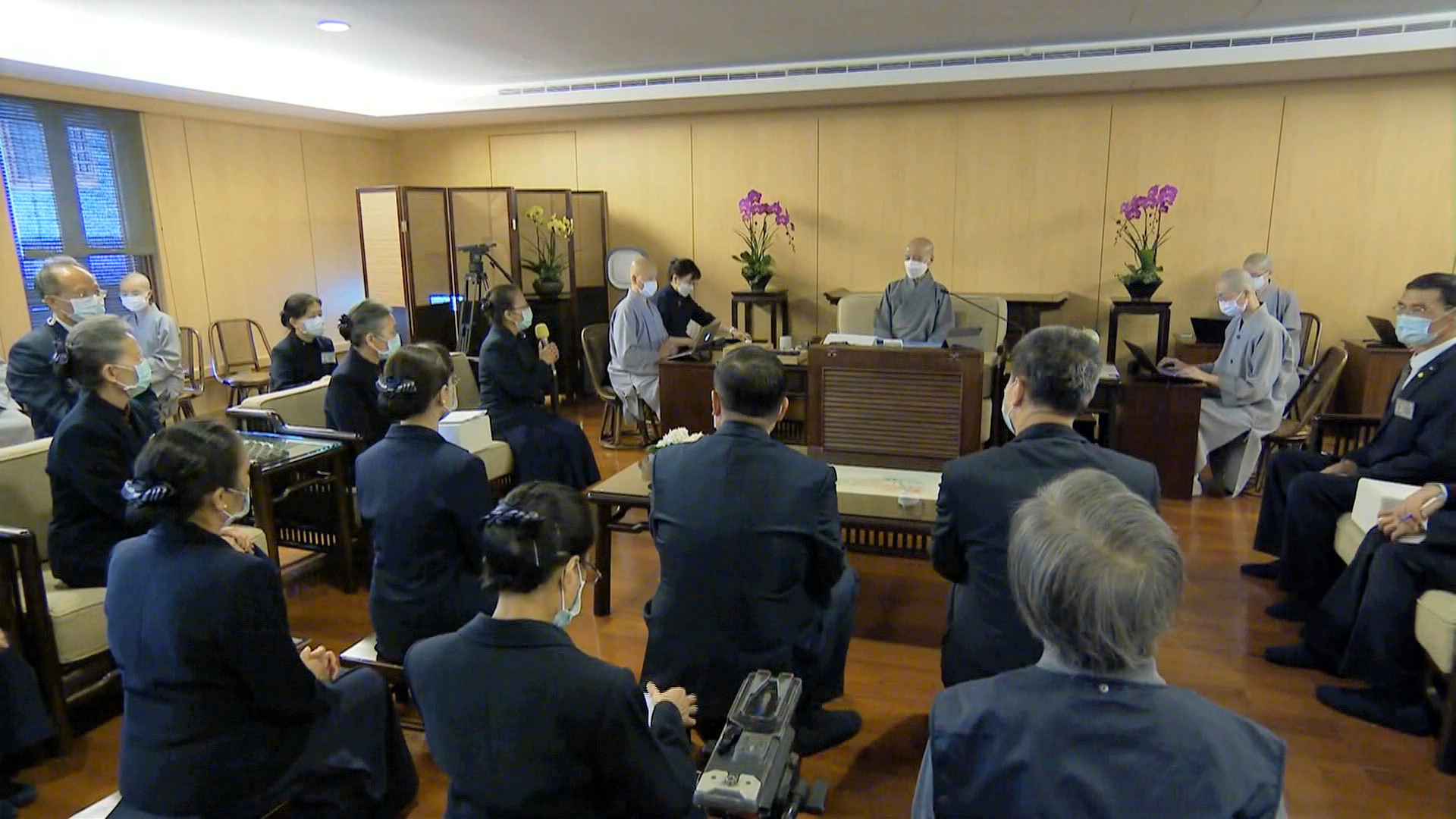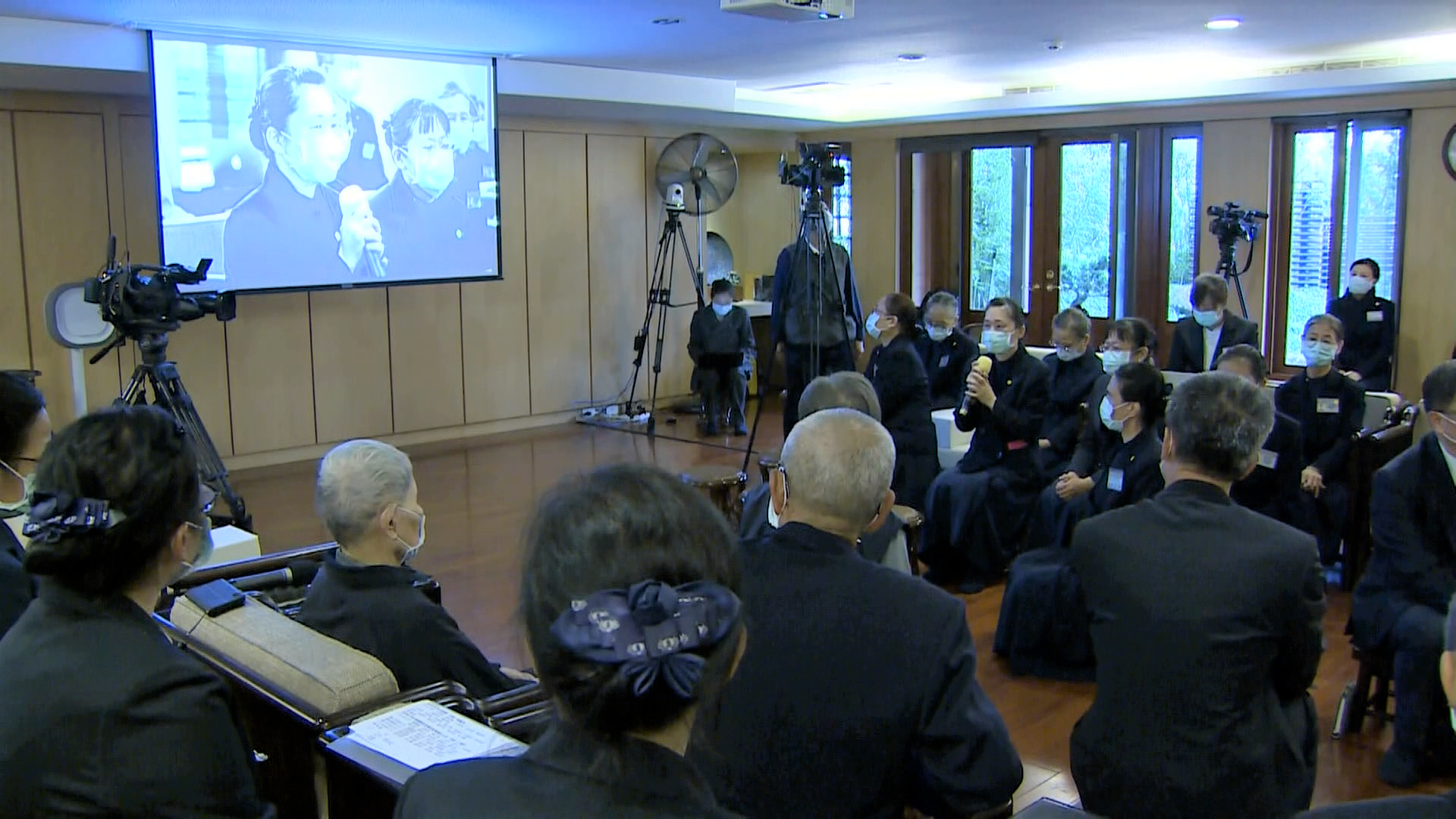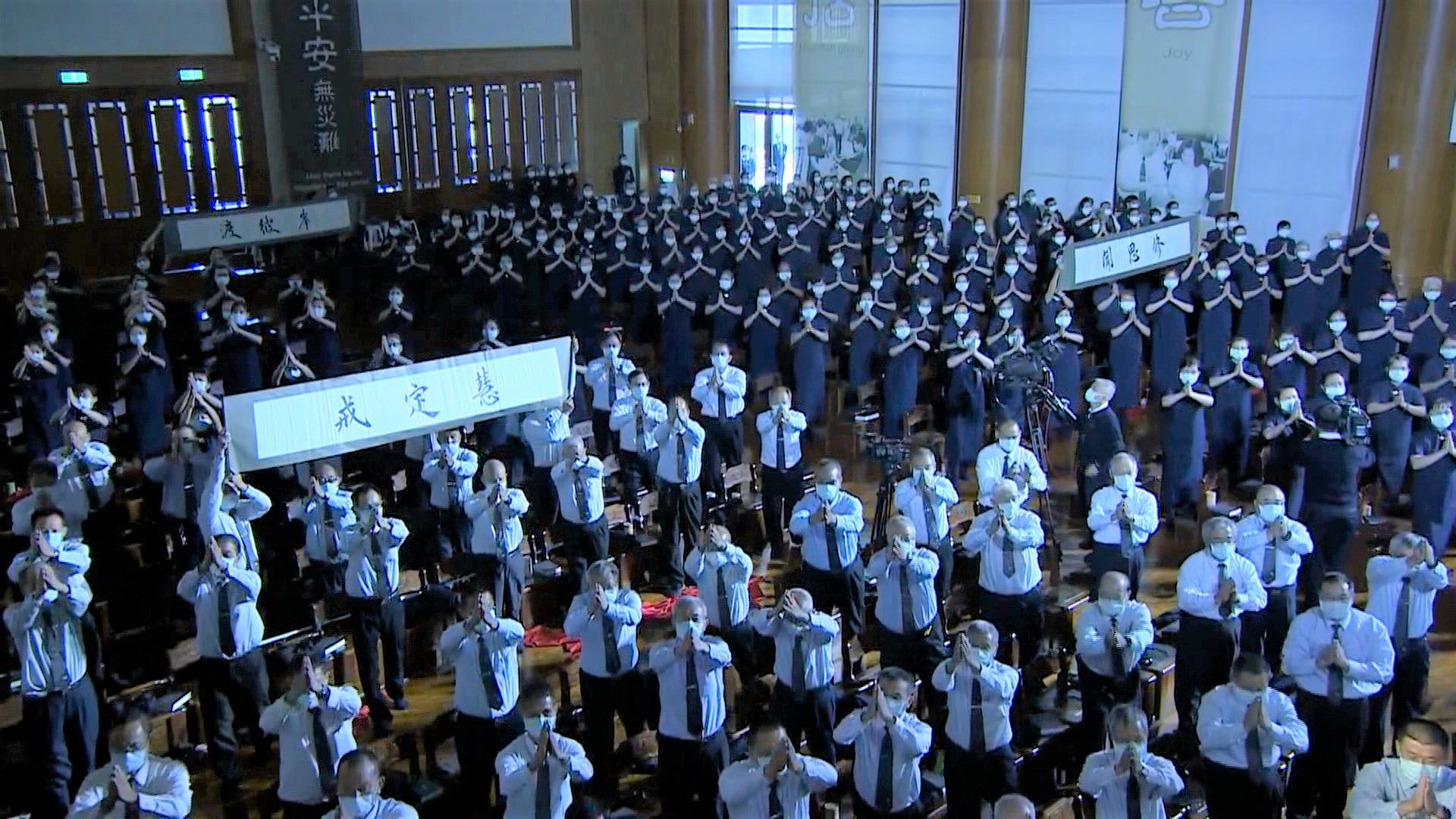Life Wisdom: Setting the Right Direction for Our Life

Volunteers, a new year is approaching. This year has given us safety and blessings, so, let us be grateful all the time. Tzu Chi volunteers used to say, “I’m very busy because there are many Tzu Chi activities in my community.” At the start of this pandemic, I began talking about “stopping, listening, and observing.” Let us stop the activities, but important things ought to keep on going as usual, such as giving encouragements to ourselves and others about learning the Dharma.
“I became a commissioner in 2005. After that, I took on the role of a team leader. I encountered many, many, many difficulties. One time, I was very hurt in the exchange that for about half a year, I didn’t want to volunteer. Last year, I attended the online study groups. In the parable of the poor son, where it says Bodhisattvas make vows, seek the Buddha’s way, and transform others, and that bodhisattvas cultivate diligently while practicing forbearance, I felt my heart opened wide. I think the study group is great and it’s very important to me; the Dharma is so important. I asked myself, “Why didn’t I learn the Dharma more diligently a few years earlier?” If I did, I wouldn’t be so angry as if I had temporarily gone mad. The Dharma is truly to be applied in daily life. When I encounter difficulties, it makes me so upset and I struggle a lot. But, when I read the books, I read them slowly, like I’m savoring them and I apply them to myself, I’ll think: no wonder Master keeps saying that: with the Dharma, there is a way; without the Dharma, there is no way. Let us benefit from observing and cultivating ourselves first rather than looking for others’ faults,” said Lin Chun-wei, a Tzu Chi volunteer.

For some people, when they first joined Tzu Chi, they followed the others in doing tasks; they were moved, and they were happy. After they became a commissioner, they needed to step up. When we see the sufferings of others, as commissioners, you emulate the Buddha’s heart and carry on my missions.
Volunteers go amongst people and serve those in suffering, they listen mindfully and find out about our care recipients’ situations. Then, with a team, they discuss and evaluate how to help the care recipients. Even when we have different views, if we work together in unity and harmony with love, and our hearts are as one, the goal will be set rightly in everything we do, and nothing will deviate.
This is the spirit of the knot of the rice dumplings, which I talk about often. With the knot of the rice dumplings, each individual string is a part of the structure, which symbolizes as a commissioner or a Tzu Cheng; they have the responsibility to introduce Tzu Chi to the people in society who are not familiar with Tzu Chi.
There are many things we need to take care of in our society. These things are like a fist of uncooked rice scattered everywhere. It is our job to gather them together; without a proper method, we won’t be able to gather them up. Hence, we employ the help of the bamboo leaves. When using bamboo leaves, we cannot use them as they are after they are collected from the bamboos. They have to be prepared first. We have to wash the leaves clean and boil them in hot water for a few minutes to make them soft. Then, we trim the leaves.

Making rice dumplings requires several steps. We put rice and fillings into skillfully folded bamboo leaves and then wrap the leaves up. We fold the leaves in a special way to create a pyramid shape. With a few strings, we make a bundle with a knot at the top in which a bamboo pole can be inserted through. In this way, we make rice dumplings that are tied together neatly in a bundle.
Isn’t this Dharma? Speaking of learning the Dharma, there are wholesome and unwholesome Dharma. There isn’t anything that doesn’t contain Dharma. So, we have to choose what is wholesome and practice it and correct ourselves from what is unwholesome. For a very long time, our hear) has been covered up by layers and layers of ignorance and greed, which give rise to afflictions. With afflictions, when we are provoked by what we hear, what is meant to be a complement will be interpret by us as a mockery.
When someone praises a person, “You are so great.” That person responds, “Don’t say that, don’t put me down.” There are people like this. It is supposed to be a good compliment, but because of their perception, they interpret it negatively and think that people are attacking them. If we are like this, we’re the one who is doing the attack to ourselves.

Life can be very simple as long as we don’t overthink things and fuss over things. I often tell people that in this life, I’m grateful to myself. I also tell myself that I have no regret in this life. I also praise myself for not having disputes with people. No matter what other people do to me, I respond it with gratitude.
“Perhaps there are things that I have not done, and he’s just reminding me.” “Perhaps there are things that I have yet to do, he’s reminding me now so I can be aware of it.” No matter what happens, I always harbor gratitude. When I do this my heart will be very calm and I can think about a lot more things.
Before, I often forget how old I am nor keep track of my age. Recently, if my steps become shaky when I walk, I say to myself, “I’m over 80 years old.” When this thought arises, I would warn myself. Having deposited 50 years in the age treasury, I’m starting anew. So, I’m only in my thirties. Age thirty is when a person stands firm. So, now is the time to start doing things. This is how I broaden my heart.
There are many things we are yet to encounter, so we must learn. At the age thirty, now is the time for us to really set the right direction for our life. Only with a correct direction will we walk down this path. This is the meaning of standing firm at age 30.








 Sitemap
Sitemap